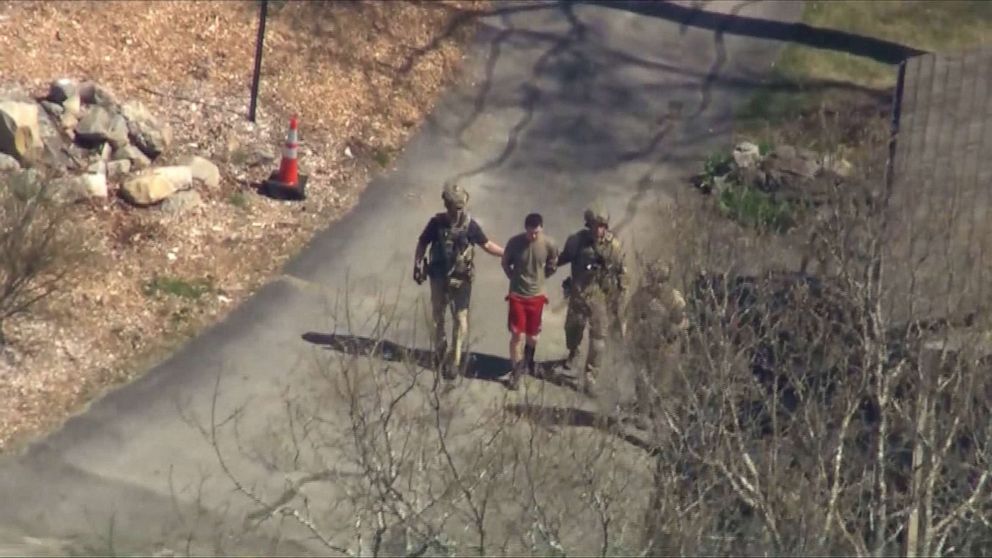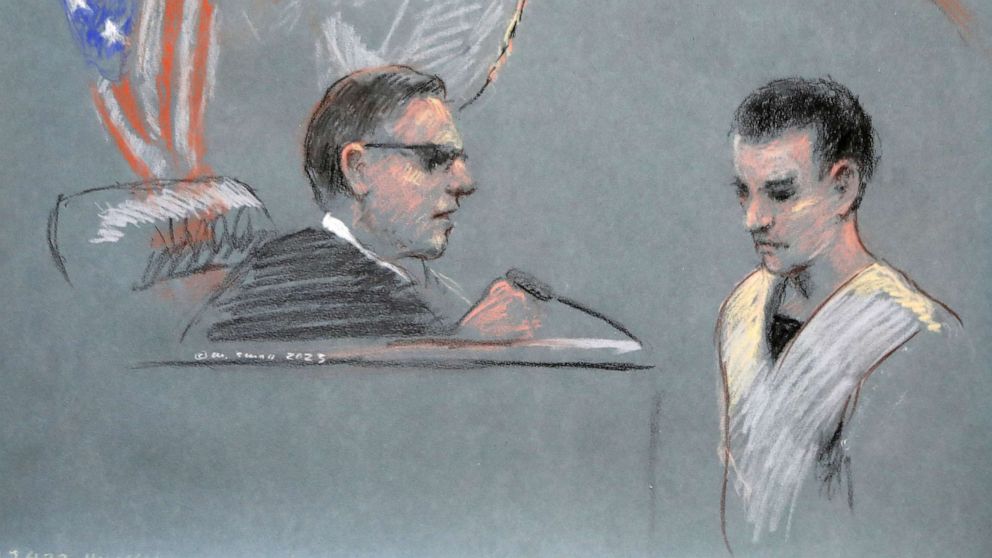Making An Espionage Impression
"It is fairly commonplace for individuals of his age to have access to classified information,""Often people at his level are supporting senior leaders, and he might have a 'need to know' if he was prepping senior leaders or putting together briefing books,""It does raise questions about how we are training individuals on how to handle classified information. It's exposing gaps in the system that will be looked at … but there's also a level of trust that you place in these individuals, that they are there for the right reasons."Alexandria Seymour, associate fellow, Technology and National Security Program, Center for a New American Security think tank"It's part of this drive to get as much information as possible for analysts to use.""And that drive means that you are potentially opening up access to information that could be leaked.""To have greater restrictions on information means more of a move towards a traditional type of strict need-to-know principles."Dan Lomas, senior lecturer in intelligence and security studies, Brunel University
 |
Suspected
classified document leaker and U.S National Guardsman, Jack Teixeira,
is taken into custody by FBI agents in North Dighton, Mass., April 13,
2023. WCVB |
"[I commend] the rapid action taken by law enforcement to investigate and respond to the recent dissemination of classified U.S. government documents.""While we are still determining the validity of those documents, I have directed our military and intelligence community to take steps to further secure and limit distribution of sensitive information, and our national security team is closely coordinating with our partners and allies."U.S. President Joe Biden
This
is the fourth time in recent decades that American high-security secret
files have been accessed by trusted personnel with security credentials
to have accessed files and documents not to be seen outside the
confines of American intelligence, but which have been released to the
scrutiny of the public at large at home and internationally. In most of
these revelatory leaks those releasing secret files did so as a matter
of personal principle in the belief that the public should be aware of
what was happening behind the scenes. In this latest case, the release
appears to have been effected by an emotionally immature man who sought
attention and admiration from his peers.
The
suspect in this latest release of secret American intelligence files,
21-year-old Jack Teixeira, comes from a military family, himself a
member of the Massachusetts Air National Guards, now accused of having
released to the public highly classified military documents. He was
arrested and a day later appeared before a court to face charges under
the Espionage Act, of having, though unauthorized, removed and retained
classified and national defence information. Seemingly motivated by the
irresistible urge to prove he had access to such documents.
The
thoughtless act of a narcissist. Someone who wanted to be the centre of
attention. And now he is up front and centre of attention. Perhaps not
quite in the way he would have wished to be. He appeared to have begun
his posting of document images, annoyed that other users of the
clandestine social gamers' group he was part of failed to take his
actions seriously in that they did not recognize the enormity of his
transgression of the trust placed in him by his upgraded security
assessment that enabled him access to the highly sensitive documents.
He
had initially taken to typing out the documents he would post, but
ended up with the feeling they weren't having the deeply admiring
impression he meant them to. Which was when he reverted to photographing
the documents themselves and posting those. And this went on for
months; highly sensitive, secret military documents available for anyone
to scrutinize in the international community. The Pentagon unaware of
the situation until an investigation was undertaken and published by The
New York Times.
Which
sparked a weeklong criminal investigation into the public disclosure of
government records, a breach exposing sensitive information on many
issues, most notably, the war in Ukraine to the world at large. A
capricious emotional pique upturning the nation's security and the trust
of its international security partners. U.S. Magistrate Judge David
Hennesy ordered Teixeira to be held until a following hearing, when he
appeared in court Friday for a brief proceeding. He is innocent until
proven guilty, and is as yet only a 'suspect', but his future does not
look bright.
A
Defence Department official advised that as an information technology
specialist responsible for military communications networks, the
Guardsman now in prison would have held a high level of security
clearance. The Pentagon is set to conduct a review of its "intelligence access, accountability and control procedures"
with a view to preventing a similar such leak from re-occurring. It is
believed by investigators that Teixeira led a private online chat group
on the Discord channel platform.
This
is a social media platform people who play online games tend to
gravitate to. The FBI took possession of billing records from Discord
which helped investigators to identify Teixeira as a suspect. An FBI
affidavit disclosed that an indioidual familiar with Teixerra's online
posts informed investigators of a username linked to Teixeira posting
classified information beginning in December. Teixera took home with him
documents to photograph and post once he "had become concerned that he may be discovered making the transcriptions of text in the workplace".
His
actions remained undetected until April 6, when the Pentagon was
alerted by the first published story of the documents breach. In their
investigation it was discovered that Teixeira had searched online for
the word "leak" in an effort to find what his leaked documents were
leading to. Which gave the FBI another clue regarding his involvement.
The group of gamers linked to Teixeira held certain issues in common
regard: gaming enthusiasts, devout Christians, gun-lovers, racism and
antisemitism.
 |
Jack
Douglas Teixeira, a U.S. Air Force National Guard airman accused of
leaking highly classified military intelligence records online, makes
his initial appearance before a federal judge in Boston, on April 14,
2023, in a courtroom sketch. Margaret Small/Reuters |
Labels: Arrest, Espionage Act, FBI, Guardsman Jack Teixera, Pentagon, Secret American Military Documents

<< Home